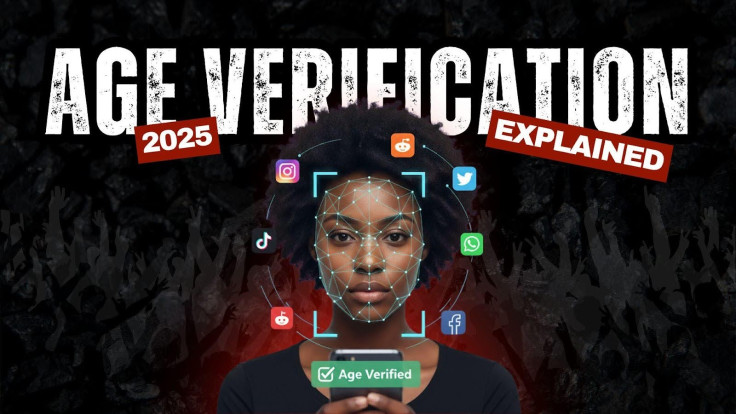UK Age Verification in 2025: SafePaper Explains Law and Privacy Risks
SafePaper explains how UK Age Verification Laws are changing the Internet, raising questions about privacy and enforcement

San Francisco, CA, September 4, 2025, Announcement—Britain's online age-verification crackdown is now a reality in 2025. As of late July, the UK's landmark Online Safety Act is in force – requiring many websites to verify users' ages with government IDs, facial scans or credit card checks. From pornography sites to popular social media platforms, companies must implement 'robust' age checks or face harsh penalties. Ofcom, the UK's communications regulator, can fine violators up to £18 million ($24.3 million) or 10% of global revenue and even block access to sites that don't comply.
This sweeping new regime – described by cybersecurity site SafePaper as 'a major change for how you use the internet' – has sparked intense debate over privacy and practicality. Many UK users are uneasy about handing over sensitive documents or biometric data just to browse the web, fearing potential leaks or misuse. SafePaper, an independent online safety research publisher, recently released a guide breaking down these concerns and the emerging loopholes, helping readers navigate Britain's stricter internet rules.
What Do the New Age Verification Rules Cover?

In 2025, age verification requirements in the UK go far beyond adult-only websites. Under the Online Safety Act, nearly any platform hosting age-sensitive content now falls under the law—including social networks, gaming apps, livestreaming services, and even online shopping platforms.
That means sites like Pornhub and XVideos now require UK users to verify their age using a government ID or face scan. Mainstream platforms such as X (Twitter), Reddit, and Discord are also enforcing age checks for access to mature content. Even unexpected platforms—like Spotify—have triggered age prompts, leaving users asking: Where does it end?
Gone are the days of ticking a simple 'Yes, I'm over 18' box. In its place:
- ID uploads (driver's license, passport)
- AI-powered facial scans
- Credit card verification
Most websites outsource this process to third-party verification providers such as AgeID (by MindGeek) or Yoti.
Privacy Concerns Mount over ID Verification

The intention behind age checks may be good—but for many users, the process feels intrusive. In 2025, proving you're 'old enough' often means handing over a passport scan, a live selfie, or even your credit card details to a third-party system. Understandably, this raises questions: Who stores this data? For how long? And what happens if it gets leaked?
Privacy groups warn that centralised ID databases could become prime hacker targets. The infamous Ashley Madison breach in 2015 showed how devastating a leak involving sensitive identity data and user behaviour can be. Today's more detailed and biometric-based systems amplify those risks.
Even when platforms claim not to store your documents long-term, users must place enormous trust in those claims. If a verification provider is compromised, it could expose both your identity and your digital habits—including which 'restricted' sites you tried to access.
Worse still, the burden largely falls on adults. Many tech-savvy teens are still getting around the rules (more on that in the next section), while everyday users face more friction, more data exposure, and less freedom online.
For a deeper dive into global trends, enforcement issues, and future risks, read SafePaper's original guide: Age Verification Laws: What Every User Should Know in 2025
VPN Loopholes – Why Teens Are Still Getting In
Despite the tougher rules, many teenagers are still slipping through the cracks. As SafePaper notes, VPNs have become the go-to workaround in 2025. By masking a user's UK IP address, VPNs make it appear as if they're browsing from another country—one without strict age checks.
This simple trick is highly effective. In fact, some major VPN providers saw a 1,400% spike in UK downloads after verification rules came into effect for adult content sites. Some VPNs now even advertise themselves as a way to 'access restricted websites'—a red flag for regulators.
Other methods exist, too: borrowed IDs, parental credit cards, or even spoofing facial recognition tools. But VPNs remain the easiest and most scalable tactic—raising real doubts about how enforceable the Online Safety Act truly is.
Regulators are not blind to these loopholes. There have been rumblings about plugging the biggest hole – VPNs – by banning or age-restricting VPN usage for minors. France and Australia have both floated the idea of tighter controls on youth using VPNs, and UK officials see VPN apps as a direct obstacle to their enforcement efforts. However, any move to clamp down on VPNs faces fierce opposition. After all, VPNs are legitimate tools that millions use for privacy, security, or accessing work resources.
The more effective path lies in smarter education, stronger parental controls, and privacy-preserving verification tools—ones that work without turning the web into a surveillance zone.
What's Next: Tougher Rules, Smarter Tech on the Horizon

The UK's age-verification rules are just the beginning. Regulators are tightening enforcement, aiming for stricter compliance and fewer loopholes. Ofcom has warned platforms to ensure their checks are 'highly effective' or face severe penalties. Expect tougher rules, fewer exemptions, and faster crackdowns. Other countries are watching closely and may soon follow.
Meanwhile, the tech world is racing to make verification smarter and less invasive. Instead of uploading IDs every time, companies are testing privacy-first tools—like digital age tokens, identity wallets, and zero-knowledge proofs—that prove you're over 18 without exposing personal data.
The rise of 'unified age IDs' that work across multiple platforms, much like Single Sign-On. Tech giants like Google are exploring these systems to embed frictionless age checks into everyday browsing—quick, secure, and without creating massive ID databases.
Staying Safe and Informed in the Age-Verification Era
For internet users, the new age-check rules can feel disruptive, but there are ways to protect your privacy and rights while adapting to the changes. Here are some tips to navigate this new normal:
- Be picky about where you verify: Only submit your ID or personal data to websites you trust – ideally those with clear, strong privacy policies. If a sketchy site demands your passport, think twice. Mainstream platforms are more likely to use reputable verification partners, whereas unknown sites might not handle your data securely.
- Watch out for scams: Unfortunately, scammers are taking advantage of the confusion. Avoid clicking on random 'verify your age' links or pop-ups – these could be phishing attempts. Always make sure any age verification request is coming from the official website or app you're using, not a third-party email or message.
- Secure your accounts: Enable two-factor authentication (2FA) on important accounts and use unique, strong passwords. Age verification itself might not protect your account – but if you're providing more info online, you want to ensure nobody can hijack your profiles. 2FA adds an extra layer of security in case your credentials or data ever leak.
- Know the data policy: Different platforms and verification services have different rules on data retention. Take a moment to read the privacy notice or FAQs for the age check process. Ideally, choose services that delete your ID data after verification or within a short time. If a platform says it will keep your documents on file indefinitely, that's a red flag for your privacy.
- Exercise your choice: Remember that you aren't obligated to use a website that asks for more personal information than you're comfortable giving. If a platform's age gate feels too invasive, you can decide to opt out and find alternatives. Also, don't hesitate to voice your concerns – user feedback can pressure companies to adopt more privacy-respecting methods over time.
Finally, stay informed. The landscape of online safety laws and verification tech is evolving quickly. What's required (or optional) today may change in a few months as governments adjust policies or new tools emerge. Keeping up with reliable, reader-focused resources will help you know your rights and options. SafePaper's detailed 2025 guide, for example, compares global age-verification laws and explores future scenarios in depth – a useful read for those who want to see the bigger picture. By following updates from digital safety experts and outlets, you can ensure that even as the internet grows more regulated, you don't unwittingly trade away your privacy or freedom.
For a more in-depth look at age verification trends – including international approaches, clever bypass tactics, and proposed solutions – you can find SafePaper's full report and other expert cybersecurity articles on SafePaper.
About SafePaper
SafePaper is an independent content site focused on cybersecurity and online privacy. We're dedicated to helping you navigate today's complex digital landscape by offering practical how-to guides, top security tool recommendations, analysis of trending events, and clear explanations of technical concepts.
Connect Person: Alex Cole
Email: support@safepaper.io
SOURCE: SafePaper
Adapted from the original research by Alex Cole, SafePaper.io
© Copyright IBTimes 2025. All rights reserved.





















